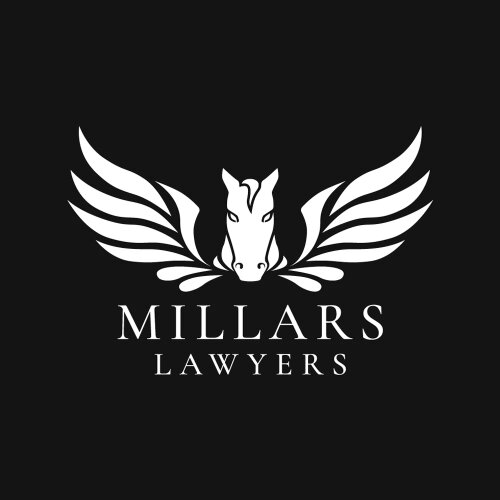Best Work Injury Lawyers in Canada
Share your needs with us, get contacted by law firms.
Free. Takes 2 min.
Or refine your search by selecting a city:
List of the best lawyers in Canada
About Work Injury Law in Canada
Work injury law in Canada deals with the legal aspects of injuries that occur in the workplace or are related to one's job. These laws are designed to protect workers from the financial burden resulting from work-related injuries or illnesses. Employers are generally required by law to maintain workers' compensation insurance, which provides benefits such as medical care and replacement income for injured employees. Each province and territory has its own workers' compensation board that administers these benefits.
Why You May Need a Lawyer
There are several situations where seeking legal advice may be beneficial if you've experienced a work injury. If your workers' compensation claim is denied, you may need a lawyer to help navigate the appeals process. Legal assistance may also be required if the compensation offered does not fully cover your medical expenses or lost wages. Additionally, if workplace negligence contributed to the injury, you might have grounds for a lawsuit outside the workers’ compensation system, requiring legal representation. Navigating these complex legal situations can be challenging, and a lawyer specialized in work injury law can provide the necessary guidance and representation.
Local Laws Overview
Work injury laws in Canada are jurisdiction-specific, meaning they vary between provinces and territories. Generally, these laws require employers to provide a safe working environment and report workplace injuries to the appropriate workers' compensation board. Workers’ compensation boards handle claims and distribute benefits such as temporary wage replacement, permanent disability benefits, and medical expenses. It's important for workers and employers to understand the local laws applicable to their jurisdiction to ensure compliance and proper handling of work-related injuries.
Frequently Asked Questions
1. What should I do immediately after a work injury?
Report the injury to your employer as soon as possible and seek medical treatment. Document the incident and your symptoms even if they seem minor initially.
2. How do I file a workers’ compensation claim?
Contact your provincial or territorial workers’ compensation board to file a claim. Your employer should provide the necessary forms and information to assist with this process.
3. What benefits can I receive from workers' compensation?
Benefits can include medical expenses, wage replacement, rehabilitation services, and permanent disability benefits, depending on the severity of your injury and your ability to work.
4. Can I sue my employer if I receive workers’ compensation?
Generally, accepting workers' compensation benefits waives your right to sue your employer for the injury. However, if third-party negligence was involved, you may be able to pursue a lawsuit against that party.
5. What if my claim is denied?
You have the right to appeal a denied claim. A lawyer can help you understand the appeals process and represent you throughout.
6. Can I be fired for filing a workers' compensation claim?
It is illegal for employers to retaliate against employees for filing a workers' compensation claim. If you suspect retaliation, seek legal advice promptly.
7. How long do I have to file a claim?
The time limit for filing a claim varies by jurisdiction. It's important to report and file as soon as possible to avoid missing deadlines.
8. Can I choose my own doctor for treatment?
This depends on the jurisdiction. Some require treatment by approved providers, while others allow you to choose your physician.
9. What happens if my injury prevents me from returning to work?
If your injury results in permanent disability, you may be eligible for long-term benefits or retraining opportunities to assist with finding alternative employment.
10. How is the compensation amount determined?
The compensation is typically based on a percentage of your average earnings before the injury, considering the severity and expected duration of your disability.
Additional Resources
For more information on work injury and workers' compensation in Canada, consider reaching out to the respective provincial or territorial workers’ compensation board. Organizations such as Workplace Safety and Insurance Board (WSIB) in Ontario, Workers’ Compensation Board of Alberta, and WorkSafeBC can provide guidance and resources. Legal aid offices and specialized law firms can also be helpful for someone seeking specific legal advice or representation.
Next Steps
If you need legal assistance with a work injury, start by gathering all relevant documentation related to your injury and claim. This includes medical records, employment records, and any communication with your employer or workers’ compensation board. Contact a lawyer specialized in work injury law in your jurisdiction to discuss your case and explore your options. Make sure to act promptly, as there are often deadlines and time limits for claims and legal actions.
Lawzana helps you find the best lawyers and law firms in Canada through a curated and pre-screened list of qualified legal professionals. Our platform offers rankings and detailed profiles of attorneys and law firms, allowing you to compare based on practice areas, including Work Injury, experience, and client feedback.
Each profile includes a description of the firm's areas of practice, client reviews, team members and partners, year of establishment, spoken languages, office locations, contact information, social media presence, and any published articles or resources. Most firms on our platform speak English and are experienced in both local and international legal matters.
Get a quote from top-rated law firms in Canada — quickly, securely, and without unnecessary hassle.
Disclaimer:
The information provided on this page is for general informational purposes only and does not constitute legal advice. While we strive to ensure the accuracy and relevance of the content, legal information may change over time, and interpretations of the law can vary. You should always consult with a qualified legal professional for advice specific to your situation.
We disclaim all liability for actions taken or not taken based on the content of this page. If you believe any information is incorrect or outdated, please contact us, and we will review and update it where appropriate.
Browse work injury law firms by city in Canada
Refine your search by selecting a city.
















